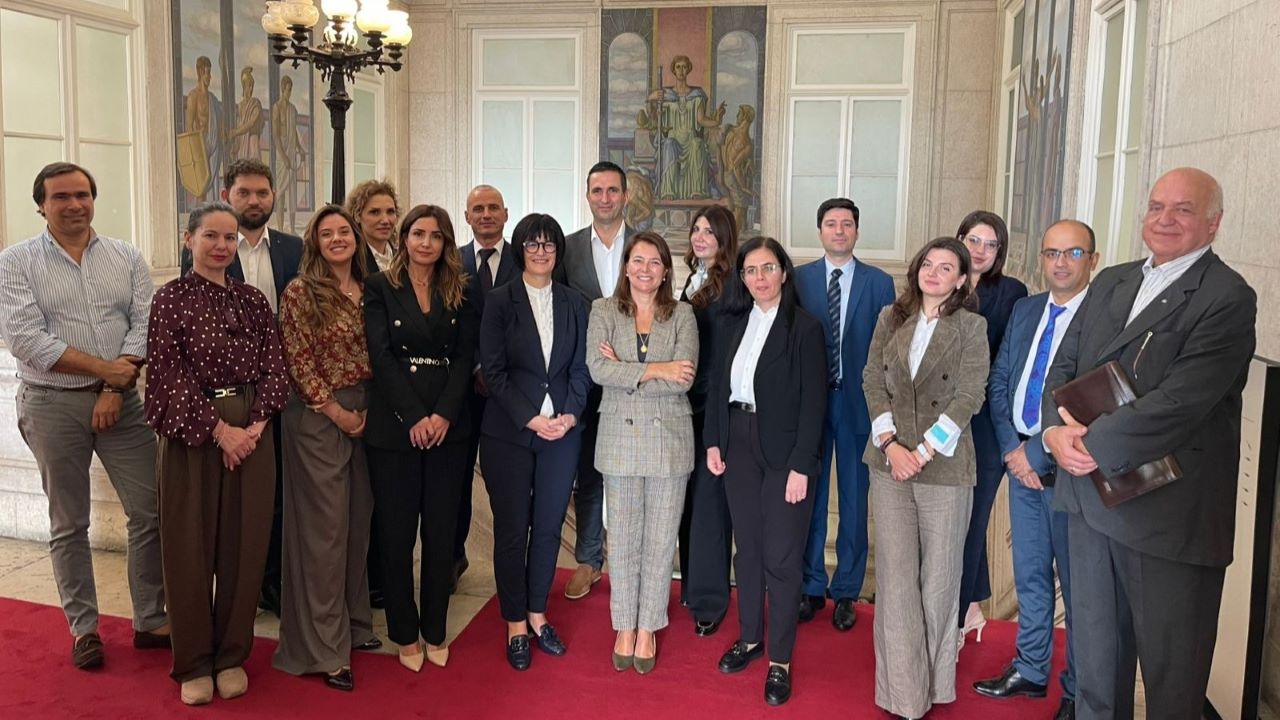A delegation from the Documentation Centre of the Supreme Court of Albania concluded an exchange visit in Lisbon focused on strengthening case management and judicial research practices, in line with European standards. 12 legal advisors and staff members met with representatives of key judicial institutions in Lisbon, including the Supreme Court of Justice, the Lisbon Court of Appeal, and the High Judicial Council.
These peer-to-peer exchanges offered practical insights into applying European human rights standards, making judicial decisions clearer, and using digital tools to improve courts’ efficiency. By learning from Portugal’s experience, the Albanian participants saw how modern practices can help courts better manage and reduce backlogs, particularly in civil, property, and criminal cases.
During the visit in the Supreme Court of Justice of Portugal, the delegation met with judges and senior legal staff, explored its archives and documentation departments, and discussed methods for integrating European human rights standards and case law into the domestic jurisprudence. They also visited the Lisbon Court of Appeal where they met with the President, as well as with officials of the High Judicial Council to exchange views on case management, e-justice tools transparency and digitalization. These meetings provided practical recommendations on how to strengthen the efficiency of the Albanian Supreme Court.
This study-visit was organised in the framework of the Action on Improving the protection of the right to property and facilitating the execution of ECtHR judgments in Albania, part of the EU and Council of Europe joint programme Horizontal Facility for the Western Balkans and Türkiye.


